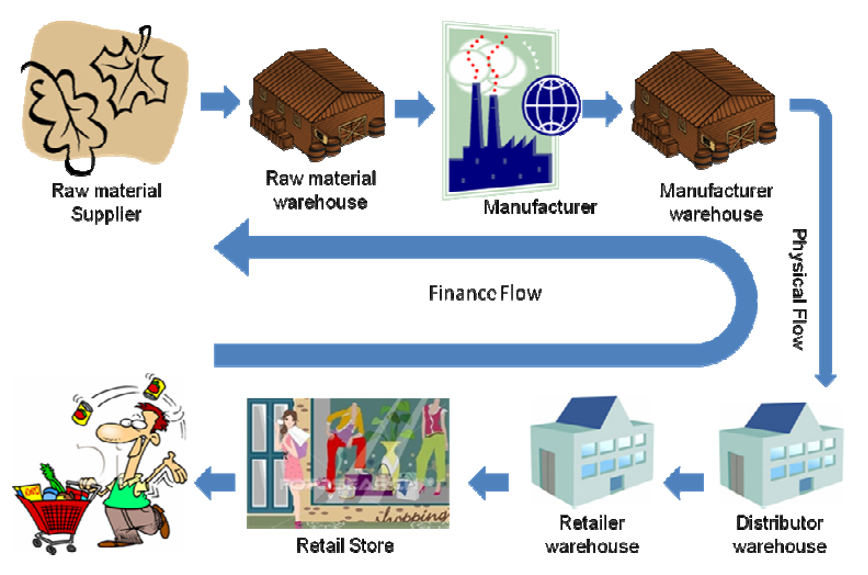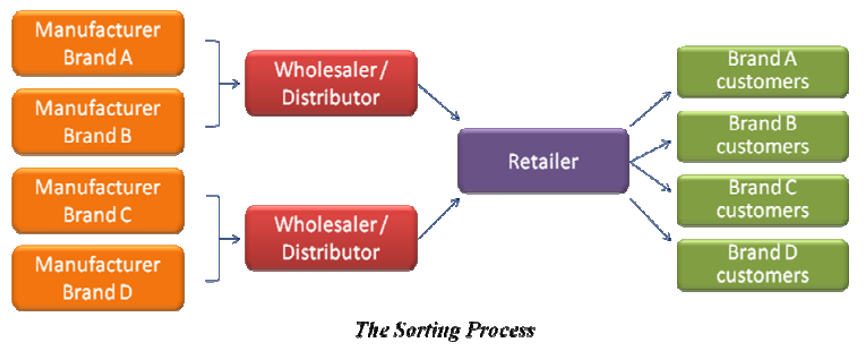All products or services are produced by manufacturers for selling to final consumers for satisfying their needs. This basic principle is the main driver for any business operation.
However there are usually very few manufacturers of any product or services as compared to the consumers. And both the manufacturers and consumers are scattered across different regions and socio-economic classes. Therefore, all products/services pass through different players before they reach the final customer. A typical chain of such players can be as following.

The barter system was the first known retail form; then the currency changed hands; we had the hand cart vendor selling goods in the streets; of late we have the pop and mom stores which compliment the neighborhood stores.
Retailing consists of all business activities that involve selling goods & services to the customer for their personal, family or household use, without any resale intention. It includes every sale to the end-user, ranging from cars to clothes, meals at restaurants to movie tickets. A retailer purchases goods or products in large quantities directly from manufacturers or through a wholesaler and then sells smaller quantities to the consumer for a profit.
Retailing does not have to be carried out necessarily at a store. Services like stay in hotel, a doctor’s consulting, haircut, a videotape rental, car rental, airline travel, etc. where service becomes a shopper’s primary offering, also fall under the purview of retail. Web transactions & vending machines also come under the scope of retail. Manufacturers, importers & wholesalers can also act as retailers if they directly sell the goods or services to the final consumer.
However, purchases made by them for their own use inside the organization or for further resale are not part of retailing.
In a distribution channel retailers play a key role as the link between manufacturers, wholesalers or distributors & the final consumers. Retailers perform various business functions with a motive of adding value to the products & services for the customers.
Providing a large assortment of products & services.
Manufacturers make various types of products or sometimes only certain specific products & sell their entire inventory to few distributors or wholesalers. But the final consumer wants to choose from a variety of goods & services, even if he purchases a limited quantity. Thus a retailer’s role here becomes very crucial, as he procures a varied assortment of goods & services in large quantities from various sources & offers them in small quantities to the end users. This is called the sorting process.

To reduce transportation cost, manufacturers & wholesalers ship big volumes of merchandise to retailers. Retailers then offer the products in smaller quantities tailored to individual customer’s needs and as per household consumption patterns. This is called Breaking the Bulk.
Holding Inventory
Retailers keep a huge amount of inventory so that products will be available to the consumers whenever they want them. This enables consumers to maintain a low level of inventory. In other words, retailers store products on behalf of the customers and which reduces the storing cost of the customers.
Apart from that retailers v vide various services to customers provide various services to customers as well as to the manufacturers & traders. Displaying products, providing information about the offerings, gift-wrapping & home delivery are some of the customer services provided by most of the retailers.
Manufacturers, distributors & wholesalers get informed about forecasts, customer preferences, brand image, etc. by the feedback from retailers. For small traders, retailers assist in storing, marketing & advertising their products.

